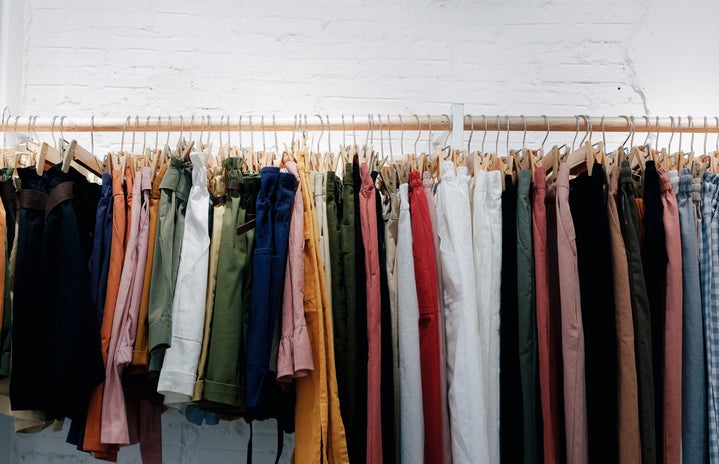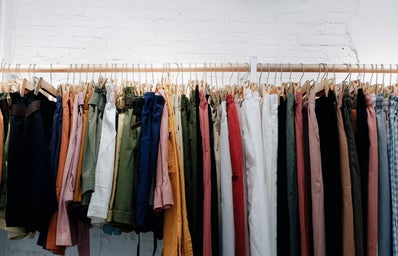Fashion. We love it, we hate it, and we are always thinking about it.
What am I going to wear tomorrow? Will this top match these shoes? I have no clothes!
I am far too familiar with these pressing thoughts and often have no idea what to wear anywhere. Twenty years ago, you may have made it a point to stop by a department store later this week and pick up a new staple item for your closet. Now, we unlock our phones and can scroll through hundreds upon hundreds of options for low prices and free delivery. Sounds perfect, but what has changed?
Well, if you have been an internet user for the past ten years, you would have noticed that everything is about speed. We want our online orders delivered quickly, our food orders ready immediately, and a short and snappy TikTok video that can hold our attention until we inevitably scroll mindlessly to the next.
The same also applies to fashion and the immeasurable amount of trends that cycle around the internet each year. From the must-have items of the clean girl aesthetic to the re-emergence of low-rise jeans, the internet is no stranger to these ever-changing fashion standards for your everyday looks. When young people, predominantly Gen Z, are force-fed video after video convincing them they need these new trendy and hip items, they buy them. Then, another trend emerges a month later, leaving the old “in” item as a placeholder in their closet, eventually becoming last year’s trends on the racks of thrift stores, or worse, in landfills. Leading to a constant cycle of consumption and discarding that just, frankly, doesn’t make sense.
The methods of production that go into keeping up with these changes are unsustainable and could have drastic negative effects on how the fashion industry operates. We have been witness to the continuing rise of fast fashion. With brands like Shein, Zara, and H&M, the fast fashion industry has quickly prioritized catering to trending fashion choices, decreasing the quality of their clothing. They have also made it extremely accessible for people to access the webpage where they can buy a certain item.
If your FYP is anything like mine, it is impossible to escape the GRWM-disguised ads for the TikTok shop with links attached directly to the video. The trends we watch videos of and keep up with are constantly changing, and even more rapidly than they used to. Our need to keep up with these trends may seem harmless, but in reality, it is a wasteful habit we need to learn to knock off before it’s too late.
I also believe that the rapid cycle of trending clothes, shoes, accessories, and other items is harmful to our generation in more ways than one. As a serial comment reader, it is hard to ignore the countless amounts of comments under almost every video pointing out or questioning what the person in the video is wearing.
There is a subtle divide that comes with fashion trends, and how adhering to certain ones allows for judgment to be thrown around when someone has a different fashion sense than you. Sure, someone’s clothing choices can give us a general idea or hint of who they are, but if we choose to only socialize or associate ourselves with someone who dresses similarly to us, how will we ever foster diverse relationships with one another? We won’t. To me, the beauty of fashion and individual style is that it is fluid. Yet, there is an emphasis placed on fitting into current fashion boxes and categories despite the fluidity that comes with self-expression.
As much as I adore the way my generation expresses themselves in such creative and unapologetic ways, I can’t help but fear the long-term effects that may come with our constant consumption of clothing items. I have also noticed other creators point out the same flaws within the online fashion world, so I am hopeful we can make efforts towards more sustainable and mindful shopping habits. One person’s efforts may not seem notable, but our collective attempts to shop ethically can be impactful.
I understand the ease of shopping fast fashion, but alternatives like upcycling, thrifting, and investing in quality pieces only when you need them are the first steps towards breaking this trend.




